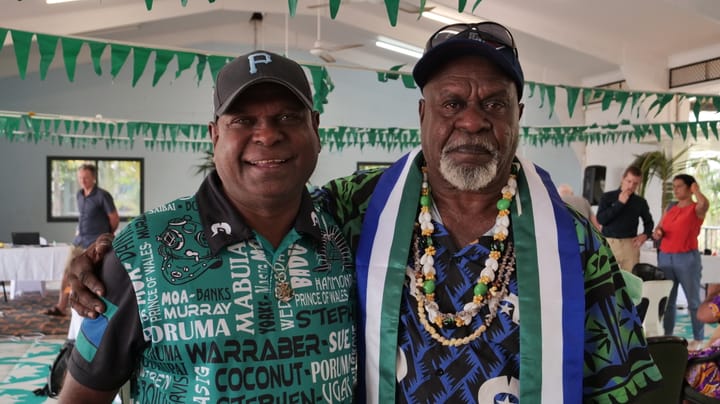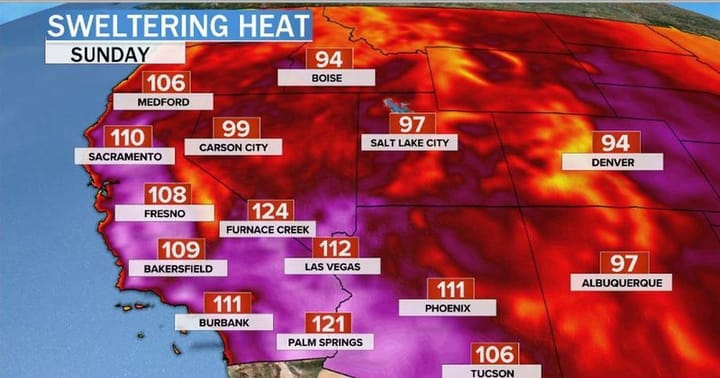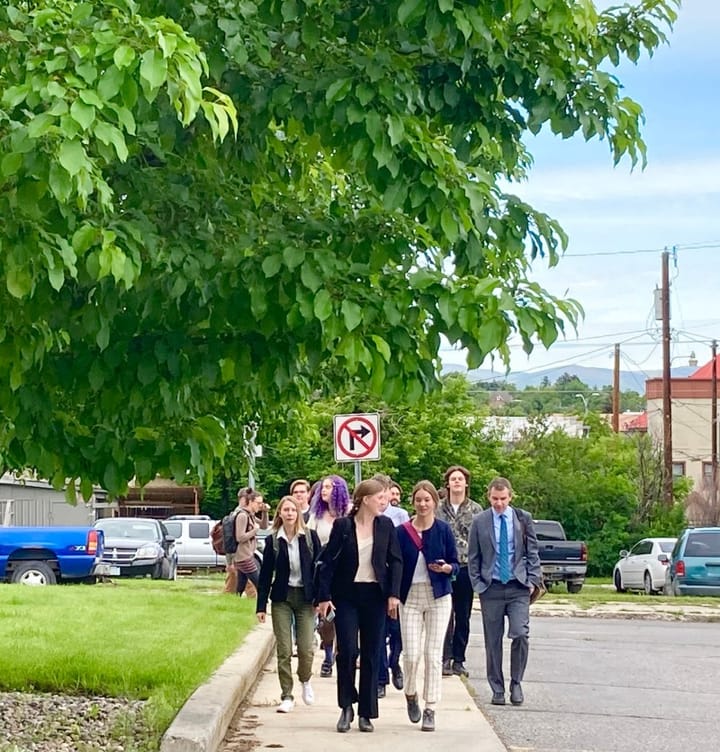Industry Allies Amplify Big Oil's Demand For US Supreme Court To End Climate Accountability Lawsuits

These fossil fuel friends - including a former US Attorney General - are fighting against climate cases in US courts.
Oil and gas industry trade associations, corporate-backed legal organizations, Republican attorneys general and other fossil fuel industry allies recently filed court briefs supporting Big Oil’s latest bid to have the US Supreme Court quash climate accountability lawsuits targeting the industry. The submission of these briefs comes as oil company defendants, facing the threat of standing trial and potentially paying significant sums in damage awards, petition the US’s highest federal court to reverse a ruling last fall from the Hawaii Supreme Court allowing Honolulu’s climate suit to proceed to trial.
Honolulu’s case is among more than two dozen lawsuits brought by cities, counties, and states seeking to hold powerful fossil fuel entities accountable for climate harms caused by their products, and for disseminating climate denial and disinformation that ultimately magnified these harms by delaying the transition away from fossil fuels. Many of the cases have overcome initial procedural wrangling, and new suits continue to be filed – the latest one from Bucks County, Pennsylvania came just last month, a few weeks after oil companies submitted their petition explicitly calling on the US Supreme Court to “put a stop to” this barrage of lawsuits.
Industry allies are now amplifying this call through the filing of friend-of-the-court or “amicus” briefs. While it is not the first time that fossil fuel defendants and their backers have lobbied the US Supreme Court to intervene in the pre-trial stages of these cases, the stakes are even higher now, they say, as several of the cases including Honolulu’s start moving towards trial in earnest. In no uncertain terms, fossil fuel company lawyers say this litigation poses “a serious threat” to the industry. Echoing this sentiment, a coalition of Republican state attorneys general say in their brief that this “grave threat” warrants the Supreme Court stepping in.
Who Are These Big Oil Backers?
These 20 Republican AGs are all members of the Republican Attorneys General Association (RAGA), which takes money from and has deep ties to the fossil fuel industry. As HEATED explains in an excellent new piece, the state AG brief is part of a larger project, an “organized effort by the fossil fuel industry to kill all formal efforts to hold corporations accountable for the climate crisis—both in the litigation space, and beyond.”
In addition to the AGs, amici backing Big Oil’s petition include oil and gas industry trade associations – the American Petroleum Institute, Western States Petroleum Association, Texas Oil & Gas Association, and the American Exploration & Production Council; big business and “free market” lobby organizations – the US Chamber of Commerce, the National Association of Manufacturers, and the American Free Enterprise Chamber of Commerce; corporate-supported legal foundations – the Atlantic Legal Foundation, the Washington Legal Foundation, and the American Tort Reform Association; a pair of retired US military officers; and two law professors affiliated with the Hoover Institution - a public policy think tank funded by conservative and corporate donors.
The US Chamber of Commerce and the National Association of Manufacturers say they represent thousands of American businesses and manufacturers of all sizes across every sector, and though their membership lists are not made public, watchdog sources document their financial ties to and advocacy for major corporate entities – several of whom are defendants in climate accountability lawsuits. The US Chamber has received at least $3 million from ExxonMobil and at least $100,000 from the American Petroleum Institute, while NAM took in $1,163,650 from API (as of 2008). Both industry lobby groups were members of the Global Climate Coalition, a corporate lobby organization (ran out of NAM headquarters) that worked throughout the 1990s to sow climate denial and doubt and obstruct climate action. According to Honolulu’s complaint, the GCC “funded deceptive advertising campaigns and distributed misleading material to generate public uncertainty around the climate debate, with the specific purpose of preventing U.S. adoption of the Kyoto Protocol.”
The American Free Enterprise Chamber of Commerce is a newer entity, formed in 2022, and runs a project headed by former Trump administration Attorney General Bill Barr called the Center for Legal Action, which defends or advocates for corporate interests like oil and gas majors in the courts. The AFECC filed an amicus brief in September 2023 backing fossil fuel companies’ petition to the US Supreme Court in Minnesota’s climate accountability case; that petition sought to reverse the 8th Circuit Appeals Court’s ruling that the case could proceed in state court, and the Supreme Court in January declined to review the ruling. Barr is one of the lead lawyers behind AFECC’s amicus briefs, and as Lisa Graves, founder and executive director of investigative watchdog group True North Research explained, he has a longstanding record of representing the interests of big business. “The fact is Barr has been a hired gun for industry for much of his career, and when he wasn’t playing hired gun for industry, he was hired gun for Trump,” she said.
The American Tort Reform Association says it is a “broad-based coalition of businesses, corporations,
municipalities, associations, and professional firms” working for civil justice reform, though watchdog sources explain that its main purpose is protecting corporate interests from liability and restricting access to justice for people and communities. According to the Center for Justice and Democracy at New York Law School, ATRA’s members “have included representatives of the tobacco, insurance, chemical, auto and pharmaceutical industries,” all with a “direct financial stake in restricting lawsuits.” And as Graves said, ATRA “has acted in diametric opposition to the right of the American people to hold corporations accountable, both for direct civil damages and for punitive damages, for intentional and deliberate destruction or harm.”
Overall, many of the amici backing Big Oil’s attempt to kill Honolulu’s case and others like it are tied to the fossil fuel defendants or defendants’ interests, which makes sense, but is still important to understand since these interests are generally not aligned with the public interest when it comes protecting environmental and human health.
“These are groups that are funded by industry,” Graves said. “Some of that is known, some of it is not known and is kept hidden. What they do on the surface is try to change the law to limit our ability as Americans to hold corporations accountable when their products or their decisions cause us harm or death.”
Main Argument
The amici’s arguments and assertions aim to sway the US Supreme Court justices to take up the oil companies’ petition in Honolulu’s case. The main legal argument concerns what’s called preemption. The industry and its allies claim that federal law, namely the Clean Air Act, supersedes the authority of state law when it comes to climate litigation. In making this argument, they try to cast the climate accountability suits as sweeping attempts to regulate global greenhouse gas emissions or otherwise set national climate policy, which is not what the cases aim to do. The cases, instead, are about alleged corporate malfeasance and deception; they argue that the oil and gas industry long ago knew about the potential dangers to the climate system and society of unrestrained use of their products, yet instead of warning the public or taking reasonable actions to mitigate the risks, the industry engaged in sophisticated campaigns to distort the public’s understanding of climate change and fossil fuels’ role in causing it – essentially, manipulation and lying on a grand scale.
Yet industry lawyers have repeatedly tried to convince courts that the cases are all about global emissions, arguing that the emissions, not the deception, are the source of plaintiffs’ injuries. The industry’s amici briefs also make that argument – Barr and his colleagues contend in the AFECC brief for example that the “‘deceptive marketing’ label is itself deceptive marketing” and that claims pled by Honolulu and other government plaintiffs are really an “attempt to regulate and impose liability on transboundary emissions.”
This characterization of plaintiffs’ claims is incorrect, as one legal expert explained. “From a straightforward legal position, these cases are not an attempt to directly regulate greenhouse gas emissions,” said Victor Flatt, an environmental law professor at Case Western University School of Law.

Thus far, most courts have rejected the industry’s framing of these cases. As the Hawaii Supreme Court pointed out: “Numerous courts have rejected similar attempts by oil and gas companies to reframe complaints alleging those companies knew about the dangers of their products and failed to warn the public or misled the public about those dangers. The Ninth Circuit did so in this case. And in other cases alleging similar deceptive promotion and failure to warn torts, the Fourth Circuit, Tenth Circuit, and the Districts of Connecticut, Massachusetts, and Minnesota have also rejected attempts to characterize those claims as being about emissions and pollution.”
Graves agrees with the courts’ determinations that Big Oil and its allies are mischaracterizing or misrepresenting what these climate accountability cases are about. “I do think there’s a way in which [fossil fuel companies] are misrepresenting the claims against them, which are about repeated acts of misrepresentation. So, there is I suppose either an irony or a consistency there,” she said.
The question now is whether the US Supreme Court will also reject the industry’s attempted reframing of these cases. Industry lawyers and allies made the same characterizations of the claims against them in previous Supreme Court petitions on more procedural issues. But in April 2023, almost exactly year ago to the day, the Supreme Court declined a handful of these petitions, effectively allowing the cases (including Honolulu’s) to advance in state courts.
Flatt said that is an encouraging sign.
“I don’t think the US Supreme Court would agree with the characterization that this is a legal attempt to regulate interstate greenhouse gas emissions. I don’t. Now, I can’t make predictions about this current US Supreme Court because it’s hard to know who would do what. But at least from what they have shown so far, they have refused to rule in favor of these companies that are the defendants in these cases to have the cases moved to federal court,” he said.
A “Parade of Horribles”
The amici briefs also contain a lot of rhetoric expressing perhaps exaggerated concerns around potential impacts of major fossil fuel companies being held liable through the courts. Several of the amici for example argue that the litigation, if successful, would have the effect of “crippling” the fossil fuel industry. They claim that this would be especially harmful for consumers; the Washington Legal Foundation, for example, asserts: “It may cost $200 to fill a tank with gas once the energy companies factor in uncapped state-law liability for their actions around the world.”
While this claim around raising the price of petroleum over time is “potentially plausible,” according to Flatt, he said it is not the courts’ job to consider this as it presents a policy issue rather than a legal matter.
“The amici in this case, I believe, are expressing a parade of horribles that is not necessarily what is going to happen, and particularly not what this specific case is about,” he said.
The brief from API and several other oil and gas trade associations is especially laden with this kind of rhetoric. “Taking the petroleum industry out at the knees would harm the American workforce and family, killing jobs and devastating retirement plans,” the brief argues. “Without this Court’s intervention, plaintiffs around the country will take a wrecking ball to the petroleum industry—and, in turn, to the entire economy,” it also asserts.
Graves said she thinks this brief is “certainly fearmongering.” But, she noted, that is part of API’s job, to “mount PR campaigns that are generally based on fearmongering.” In this case, she sees the brief as part of the industry’s strategy to try to get the Supreme Court’s attention so that conservative justices may be inclined to sympathize with it. “I have no doubt that this another effort to manipulate and rig the rules of the game to favor the fossil fuel industry and try to get this Court to help the industry avoid legitimate, rightful accountability in Hawaii and beyond,” Graves said.
Honolulu will have a chance to respond to Big Oil’s petition seeking to quash its suit. It is expected to file its reply brief by May 1.


